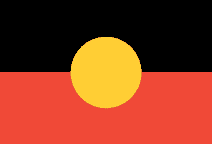Our CEO Corinne Proske, on the people behind our “record low” unemployment rate.
As we race toward the federal election, you’d be forgiven for missing the fine detail behind the latest unemployment figures. But whether or not you’re keeping up with the statistics, it’s been impossible to miss the Help Wanted signs plastered in windows throughout every shopping strip in the country.
With the Treasurer spruiking a national unemployment figure at its lowest in 50 years and business owners desperate for staff, it’s easy to get the picture of an Australia where jobs are available for everybody who wants one.
But for many of us, the numbers are a long way from reality.
As we know, the unemployment rate is a blunt instrument, one that considers anyone who works at least one hour per week as in employment.
More revealing are the numbers around “underemployment”, which currently show 1.3 million Australians need more work than they have, and “discouraged jobseekers” – people who also want to work but are not actively looking for a job, so not counted as unemployed.
Far from the topline “record unemployment” of 3.9 per cent, the latest data from Roy Morgan shows more than 18 per cent of Australia’s workforce are working less than they need to, or not working at all.
And the vast majority are Australians experiencing disadvantage.
People living with disability, women over the age of 45, culturally and linguistically diverse Australians and sole parents are among the hundreds of thousands in our communities who are willing and able to work, but simply not visible to most employers.
How must these people feel when faced with news about our apparently rosy employment outlook?
Not to mention people under 25 who, no matter their background or goals, have lost two years of opportunity and workplace experience, on top of everything else the pandemic has taken from them.
Leading an organisation that works to embed inclusive employment across business and industry, these are not rhetorical questions.
Research around diverse and inclusive hiring practices shows clear benefits, not just to communities and individuals, but to the businesses which broaden the way they consider their people and supply chains.
While the words diversity and inclusion might be bandied about with increasing frequency, the hard numbers show how much work is needed to improve prospects for Australians experiencing disadvantage.
This work, and the opportunity that comes from it, sits with employers.
If you’re currently looking for staff, it’s time to ask some questions of your organisation.
Do you dismiss candidates because of gaps in their CV, or because they don’t have Australian experience or qualifications?
Does your organisation overvalue qualifications and undervalue skills?
We know people with caring responsibilities are amazing multitaskers and usually outstanding under time pressure, yet are you unconsciously discriminating against people who can’t work full time hours?
Many single parents seeking employment are constrained by childcare commitments. Do your employees need to start work at 9am?
Have you spoken with any candidates who have disability?
Far from creating extra burden for their employers, many people with disability already have their own well-developed processes for adapting to new situations, yet are often denied the chance to even have a conversation with potential employers.
And how does your hiring process treat older Australians?
A huge amount of experience, skill and insight is ready and waiting to be leveraged by open-minded employers who understand that talent can be repurposed.
These kinds of biases are keeping many Australians from contributing more fully to our society, while research into inclusive workplaces has consistently shown the benefits to employers clearly outweigh any perceived risks.
Over the past two years, both industry and individuals have proved they can be flexible.
It’s time to turn our minds to genuine inclusion.
Regardless of who wins on Saturday, employers have to do their share. It’s time to get to work.
Corinne Proske, Jobsbank.
Photo: Laura May Grogan
About Jobsbank
At Jobsbank we are passionate about inclusion and the difference it makes – not just to one person, but to teams and whole organisations. We believe in an Australia where everybody belongs. That’s why we’re helping to build more inclusive workplaces one business at time. Whether you have specific focus areas or you’re looking to achieve transformational change – our services are tailored to meet your specific needs and provides you with the insights and tools to deliver sustainable solutions.



